Suggested Reading
The following books are excellent resources for changing how you think, feel and live. Click the book cover to buy the book on Amazon.com.
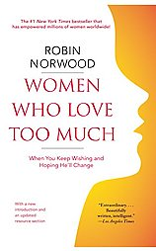
Women Who Love Too Much: When you Keep Wishing and Hoping He’ll Change
by Robin Norwood (Author)
The #1 New York Times bestseller that asks:
ARE YOU A WOMAN WHO LOVES TOO MUCH?
- Do you find yourself attracted again and again to troubled, distant, moody men — while “nice guys” seem boring?
- Do you obsess over men who are emotionally unavailable, addicted to work, hobbies, alcohol, or other women?
- Do you neglect your friends and your own interests to be immediately available to him?
- Do you feel empty without him, even though being with him is torment?
If being in love means being in pain, you need to read Women Who Love Too Much.
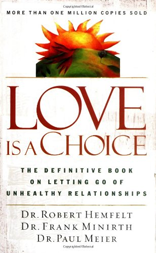 Love is a Choice: The Definitive Book on Letting Go of Unhealthy Relationships
Love is a Choice: The Definitive Book on Letting Go of Unhealthy Relationshipsby Dr. Robert Hemfelt (Author), Dr. Frank Minirth (Author), Paul Meier M.D. (Author)
These bestselling doctors walk you through their ten proven stages to recovery from codependency that results from external circustances. Christian-based.
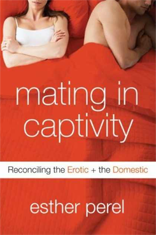
Mating in Captivity: Reconciling the Erotic and the Domestic
by Esther Perel
My favorite book on why sexual frequency declines in committed relationships and what to do about it.
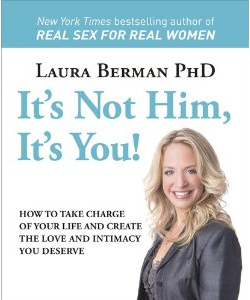
It’s Not Him, It’s You: How to Take Charge of your Life and Create the Love and Intimacy you Deserve
by Laura Berman, Ph.D
This is an excellent overview of why women get drawn into destructive relationship patterns and how to establish healthier ones. I was impressed with the breadth of topics covered and her easy to read description of important, complex psychological concepts people need to understand in order to find the love they want.
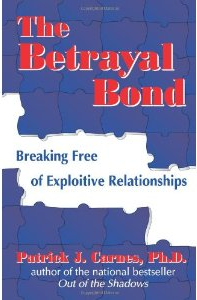 The Betrayal Bond: Breaking Free of Exploitative Relationships
The Betrayal Bond: Breaking Free of Exploitative Relationshipsby Patrick J. Carnes
Patrick J. Carnes is a nationally-known speaker on addiction and recovery issues. He is the author of Out of the Shadows, Contrary to Love, A Gentle Path Through the 12 Steps and Don’t Call It Love. This book presents an in-depth study of exploitative relationships: why they form, who is most susceptible, and how they become so powerful. He explains to readers how to recognize when traumatic bonding has occurred and provides a checklist so they can examine their own relationships. Included are steps readers can take to safely extricate themselves or their loved ones from these situations.
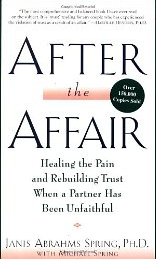 After the Affair: Healing the Pain and Rebuilding Trust When a Partner Has Been Unfaithful
After the Affair: Healing the Pain and Rebuilding Trust When a Partner Has Been Unfaithfulby Janis Abrahms Spring (Author), Michael Spring (Author)
For married or cohabiting couples who want to rebuild their relationship after one partner had had an affair, this tough-minded, insightful manual will be eminently practical. Clinical psychologist Spring, writing with her husband, draws on 20 years of experience treating distressed couples as she explains how both the unfaithful partner and the betrayed one can confront their doubts and fears about recommitting, constructively communicate pain and anger, restore trust, renew sexual intimacy and forgive. In jargon-free prose, she urges both partners to probe the deeper meaning of the affair, to explore why it happened and to accept responsibility for it. Recognizing unstated assumptions held by oneself or one’s mate is an integral part of this process, and the authors include exercises, concise case studies and checklists of suggestions to guide readers through the difficult task of healing. This wise book fills a gap on the self-help shelf. First serial to Cosmopolitan; available on audiocassette.
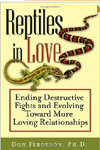 Reptiles in Love: Ending Destructive Fights and Evolving Toward More Loving Relationships
Reptiles in Love: Ending Destructive Fights and Evolving Toward More Loving Relationshipsby Don Ferguson Ph.D.
According to psychologist Ferguson, we’re all reptiles in love: conflicts between people, especially in intimate relationships, are often triggered by our “reptilian” brains, the part that brings on a fight-or-flight stance rather than rational or mutually beneficial behaviors—when threatened, we lash out. Too many relationship guidebooks rush the couple to resume a feeling of intimacy, says Ferguson, when in fact, fear and anger must be reduced and trust re-established first. Addressing what he calls “stupid fighting” (over nonsense: “You’re cheap,” “It’s your mother’s fault”), Ferguson takes a close look at the dynamics of intimacy and how it is that people who have the greatest passion for each other also seem to dole out the most venom when threatened. This book offers understanding of the mechanics of human relationships and sensible guidelines for lessening tension and resolving conflict.
 Reinventing Your Life
Reinventing Your Lifeby Jeffrey Young, Ph.D. and Janet Klosko, Ph.D.
Identify and break the 11 most common, self-defeating emotional patterns, or lifetraps. The book provides specific change techniques for readers to follow to remediate problems born of childhood origin, e.g. partner choices and self-defeating behavior patterns.
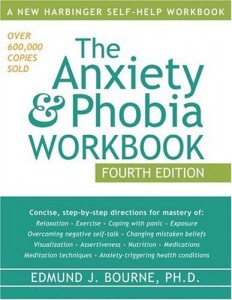 The Anxiety & Phobia Workbook
The Anxiety & Phobia Workbookby Edmund J. Bourne
Clients make more progress using workbooks than just reading about what to do.
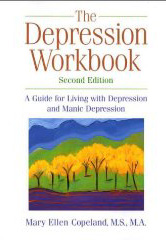 The Depression Workbook 2 Edition: A Guide for Living with Depression and Manic Depression
The Depression Workbook 2 Edition: A Guide for Living with Depression and Manic Depressionby Mary Ellen Copeland
 The Worry Control Workbook
The Worry Control Workbookby Mary Ellen Copeland
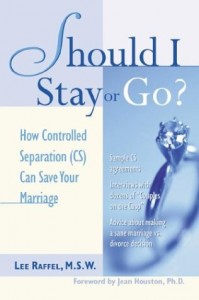 Should I Stay Or Go? How Controlled Separation (CS) Can Save Your Marriage
Should I Stay Or Go? How Controlled Separation (CS) Can Save Your Marriageby Lee Raffel
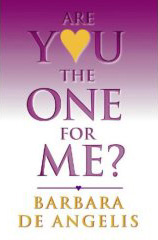 Are You the One for Me? Knowing Who’s Right and Avoiding Who’s Wrong
Are You the One for Me? Knowing Who’s Right and Avoiding Who’s Wrongby Barbara D’Angelis
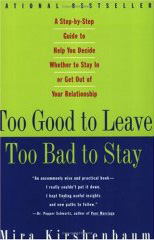 Too Good to Leave, Too Bad to Stay: A step-by-step guide to helping you decide to stay in or get out of your relationship
Too Good to Leave, Too Bad to Stay: A step-by-step guide to helping you decide to stay in or get out of your relationshipby Myra Kirshenbaum
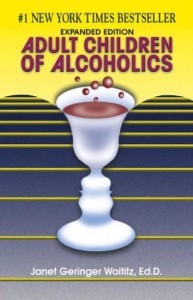 Adult Children of Alcoholic
Adult Children of Alcoholicby Dr. Janet Woititz
This is one of my clients favorite books.
People are often surprised to learn how normal (though often problemmatic) their reactions are in the context of growing up as a child of an alcoholic.
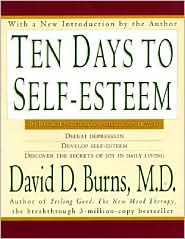 10 Days to Self Esteem Workbook
10 Days to Self Esteem Workbookby David Burns
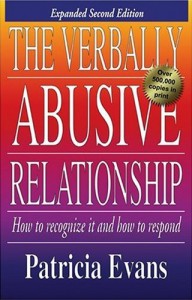 The Verbally Abusive Relationship
The Verbally Abusive Relationshipby Patricia Evans
Please note: Her list of the characteristics of Verbal Abuse are the best I have seen and why I’ve included it in this list. My clients are often surprised when they read the list and discover that they are communicating in an abusive way. However, she attributes abuse to being a gender issue i.e. male-generated, which is an oversimplification that will alienate many readers.
 When Words Hurt:How to Keep Criticism from Undermining Your Self-Esteem
When Words Hurt:How to Keep Criticism from Undermining Your Self-Esteemby Mary Lynne Heldmann
- Understand how and why criticism undermines your self esteem
- Take control of your responses to criticism
- Listen to and think objectively about criticism
- Deal with childish responses to criticism
- Balance your feelings with rational thinking
- Build self-esteem in the midst of a verbal attack
- Give criticism tactfully yourself
 Dance of Anger and Dance of Intimacy (2 books)
Dance of Anger and Dance of Intimacy (2 books)by Harriet Lerner
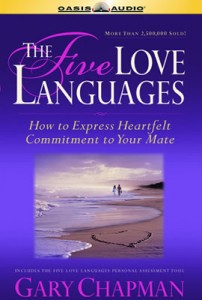 The Five Love Languages: How to Express Heartfelt Commitment to your Mate
The Five Love Languages: How to Express Heartfelt Commitment to your Mateby Gary Chapman
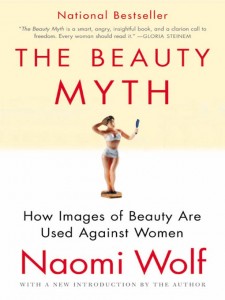 The Beauty Myth: How Images of Beauty Are Used Against Women
The Beauty Myth: How Images of Beauty Are Used Against Womenby Naomi Wolf
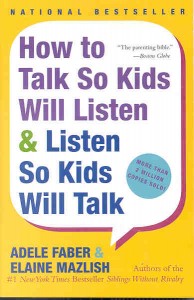 How to Talk So Kids Will Listen & Listen So Kids Will Talk
How to Talk So Kids Will Listen & Listen So Kids Will Talkby Adele Faber & Elaine Mazlish
 Why Marriages Succeed or Fail and How you Can Make Yours Last
Why Marriages Succeed or Fail and How you Can Make Yours Lastby Dr. John Gottman
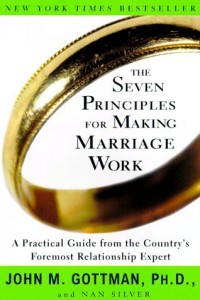 The Seven Principles for Making Marriage Work
The Seven Principles for Making Marriage Workby Dr. John Gottman
Therapist and marriage researcher John Gottman presents an upbeat, easy-to-follow manual based on research into the dynamics of married couples. Gottman asserts that he’s been able to predict the future of marriages with an accuracy rate of over 90 percent. Gottman points out that couples whose interactions are marked by four characteristics–criticism, contempt, defensiveness, and withdrawal–are in trouble, and he includes self-tests for diagnosing these destructive tactics, as well as steps for countering them. The book offers a four-step program for breaking through negativity and allowing one’s natural communication and problem-solving abilities to flourish. An interesting video on Gottman and his approach is at http://www.kirotv.com/news/news/the-gottmans-secret-to-a-happy-marriage/nDN8J/
You’ll also learn:
- More sex doesn’t necessarily improve a marriage
- Frequent arguing will not lead to divorce
- Financial problems do not always spell trouble in a relationship
- Wives who make sour facial expressions when their husbands talk are likely to be separated within four years
- There is a reason husbands withdraw from arguments — and there’s a way around it
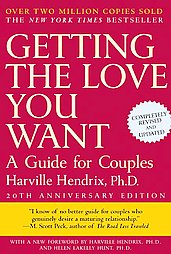 Getting the Love You Want
Getting the Love You Wantby Dr. Harville Hendrix
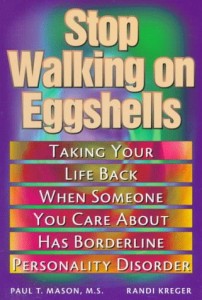 Stop Walking on Eggshells: Help for loved ones who care about someone with Borderline Personality Disorder
Stop Walking on Eggshells: Help for loved ones who care about someone with Borderline Personality Disorderby Randi Kreger & Paul Mason
 The Couples Comfort Book, a creative guide filled with ways for couples to stay connected in a busy world
The Couples Comfort Book, a creative guide filled with ways for couples to stay connected in a busy worldby Jennifer Louden
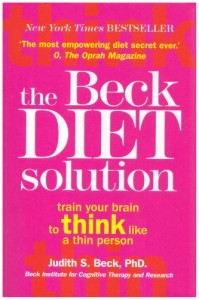 The Beck Diet Solution; train your brain to think like a thin person. A cognitive behavioral approach to weight loss and management
The Beck Diet Solution; train your brain to think like a thin person. A cognitive behavioral approach to weight loss and managementby Judith S. Beck, Ph.D.

